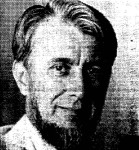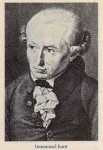This is the “justice in production” argument in a nutshell posted on the PBS Making Sen$e website.
Classical Liberalism and the Firm
This is a scan of my chapter in the new book: Commerce and Community: Ecologies of Social Cooperation, edited by Robert F. Garnett, Paul Lewis, and Lenore T. Ealy. London: Routledge, 2015.
The Neo-Abolitionist Case Against Renting People
The talk presents the arguments from inalienable rights theory in a neo-abolitionist framework as making the case against the renting of people, i.e., against the employment relation–echoing the abolitionist case against the owning of people.
American Revolution Applied to Corporations
The basic idea of the talk was to take the fundamental principles of the American Revolution and apply them to the economic sphere.
Talk on Alienation versus Delegation at Troy University
These are the slides for a talk on Alienation versus Delegation at a conference on Philanthropy and the Economic Way of Thinking at Troy University, Troy, Alabama November 7, 2014.
Talk on property theory at UMKC, Nov. 2014
These are the slides, with some minor additions and editing, for a talk On Property Theory given at the University of Missouri at Kansas City Economic Department November 17, 2014.
On Property Theory
This paper is an introduction to property theory including the invisible hand mechanism which handles the initiation and termination of property rights in an on-going private property market economy. The Fundamental Theorem is that when Hume’s conditions of no involuntary transfers and no breached contracts are fulfilled, then the Lockean principle of people getting the fruits of their labor, i.e., imputing legal responsibility in accordance with de facto responsibility is satisfied. The major application is to the current system of a private property market economy based on the renting of persons, i.e., the employment contract.
This is a reprint of the paper in the Journal of Economic Issues in Sept. 2014.
Making Enterprises and Markets Responsible
This is a paper written to further Richard Cornuelle’s abiding vision of a more responsible economy and posted here to invite comment. The basic idea is revisit the whole idea of a market economy dominated by absentee-owned and publicly traded corporations (“Wall Street Capitalism”) that disconnect companies (“the Mother of all disconnects”) from the natural desires of the people working in the companies to improve their communities.
Kantian Personhood Principle
This paper formulates the labor theory of property and democratic theory in the context of the Kantian personhood principle to treat other persons always as ends in themselves and never simply as means.






